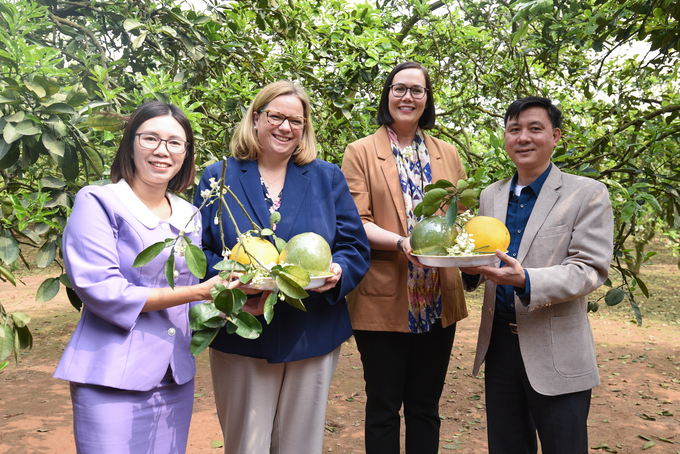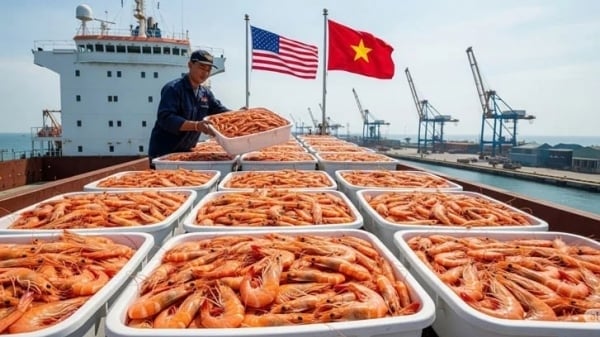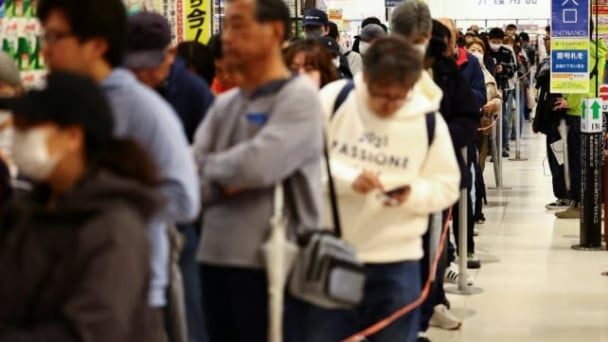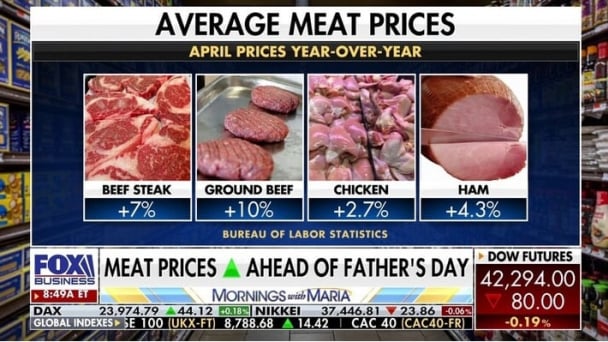June 16, 2025 | 10:25 GMT +7
June 16, 2025 | 10:25 GMT +7
Hotline: 0913.378.918
June 16, 2025 | 10:25 GMT +7
Hotline: 0913.378.918

In February 2023, US Deputy Secretaries of Agriculture Alexis Taylor (second from right) and Jenny Moffitt (third from right) visited a grapefruit garden in Hoai Duc district, Hanoi City. Photo: Tung Dinh.
The “fruit diplomacy” initiative is part of a broader strategy where agricultural trade is crucial, benefiting both Vietnam and the United States.
Vietnam is renowned as the tropical fruit bowl of the world. Conversely, the United States can provide consumers with a diverse range of fruit options, enhancing variety in the domestic market. To export fruit to the United States, Vietnam must adhere to stringent quality and safety standards.
Trading agricultural products like fruit also fosters cultural exchange. American consumers are becoming more familiar with Vietnamese fruits such as dragon fruit, lychee, and mango, which has spurred interest in Vietnamese culture and cuisine.
“Fruit diplomacy” also promotes sustainable agricultural development. By providing new markets, Vietnamese farmers are encouraged to adopt scientific and safe farming practices to meet international standards, contributing to environmental protection and rural development.
In an interview with Vietnam Agriculture Newspaper, Mr. James Yi, Agricultural Attaché of the US Embassy, stated, “Vietnam’s fruit industry has substantial potential due to its diverse climate, which is conducive to growing various types of fruit year-round. Additionally, the country’s increasing focus on agriculture and exports promises strong growth opportunities.”
Mr. James Yi emphasized that quality is critical for success in the global market. Vietnam has been enhancing fruit quality standards through advanced farming techniques, modern post-harvest handling processes, and compliance with international food safety regulations.

According to James Yi, Agricultural Attaché of the US Embassy in Vietnam, the Vietnamese fruit industry has great potential. Photo: Thanh Thuy.
Vietnamese fruits have significant advantages and opportunities in the US market, especially as American consumer demand for tropical and imported fruits rises. To date, Vietnam is authorized to export seven types of fresh fruits to the US market: mango, longan, lychee, dragon fruit, rambutan, star apple, and grapefruit.
Yi offered several suggestions to increase the presence of Vietnamese fruits in the US market. He emphasized that Vietnam needs to focus on enhancing fruit quality and ensuring compliance with US food safety standards. From the cultivation stage, fruits intended for export to the US must strictly adhere to requirements for traceability, care, preservation, and avoidance of banned substances.
Regarding development strategy, Yi stated, "Vietnam could focus on increasing value-added processing, expanding export markets, investing in research and development for new varieties, and enhancing infrastructure to support the fruit industry’s growth.”
According to the Attaché, expanding the market will benefit both countries, particularly as the US aims to export more agricultural products to Vietnam. The US Embassy in Vietnam serves as a bridge between the Ministry of Agriculture and the farming communities of both nations.

Lychee is one of seven types of Vietnamese fresh fruits licensed to be exported to the United States. Photo: Tung Dinh.
Mr. James Yi expressed high expectations for continued cooperation and improvement in the fruit trade market. “We observe that agricultural trade between the two countries is growing exponentially. We anticipate that this relationship will flourish, with sustained interest from both sides in new fruits, vegetables, and agricultural products.”
Director of the US Animal and Plant Health Inspection Service (APHIS), J.J. Hurley, offered some recommendations for Vietnamese growers and businesses looking to export fruit to the US market.
The United States maintains stringent hygiene and plant quarantine standards, addressing plant health issues and ensuring products are free from pathogens. APHIS Director Hurley praised Vietnam's recent successes in this regard. Although Vietnam currently exports only seven types of fruit to the US, this number is expected to increase with continued effort and cooperation.
“For farmers wanting to export fruit to the United States, monitoring for pests and diseases on their farms is extremely important. Countries do not want to spread pests because they pose a significant threat to agriculture," Hurley stated.

Director of the United States Animal and Plant Health Inspection Service (APHIS) J.J. Hurley offers some recommendations for Vietnamese growers and businesses when exporting fruit to the US market. Photo: Thanh Thuy.
Therefore, by adhering to good agricultural practices, maintaining clean farms, regularly monitoring for pests, and working with local authorities to ensure safety and hygiene, Vietnamese farmers can sustain effective export activities. Additionally, growers must strictly comply with international standards to maintain a professional, healthy, and safe export chain of agricultural products.
Mr. Hurley added, “I have worked with regulatory agencies to determine the regulations regarding what is and is not allowed into the United States. A requirement for all fresh fruit exported from Vietnam to the United States is that they must undergo irradiation, a treatment method to minimize pests and diseases on the fruit."
APHIS is actively researching products and necessary procedures to facilitate the opening of additional fruit products to both countries. The US hopes to introduce California peaches and nectarines to the Vietnamese market soon. Additionally, grapes, blueberries, cherries, apples, pears, and oranges may also reach the Vietnamese market.
According to Mr. Hurley, efforts to export fruit to Vietnam are part of the United States' “fruit diplomacy” policy.
Recently, on May 16, Deputy Minister of Agriculture and Rural Development Tran Thanh Nam met with the California Department of Food and Agriculture. The two agencies are focused on promoting agricultural trade and investment cooperation, encouraging collaborative research and development, technical exchange, and information sharing related to sustainable agricultural practices.
Translated by Quynh Chi

(VAN) Noting risks, report examines impacts of avian influenza, changing trade patterns since 2022, fish fraud, and shipping industry’s net-zero goals.

(VAN) Mr. Tran Quang Bao, General Director of the Forestry and Forest Protection Department, met and worked with the International Wood Products Association to promote cooperation in the field of timber trade.

(VAN) China's outbound shipments of rare earths in May jumped 23% on the month to their highest in a year, though Beijing's export curbs on some of the critical minerals halted some overseas sales.

(VAN) To sustain capital flow, administrative reform alone is not enough; what farmers truly need is an ecosystem where both government and businesses grow together in support.

(VAN) Vietnam and the United States are proactively working together, each in their own way, to ensure that every container of agricultural goods carries not just products, but also long-term trust and value.

(VAN) Stores have started selling rice from the government’s stockpile to feed demand for the staple.

(VAN) Omaha Steaks CEO says rebuilding cattle herds will take about a year to ease price pressures.